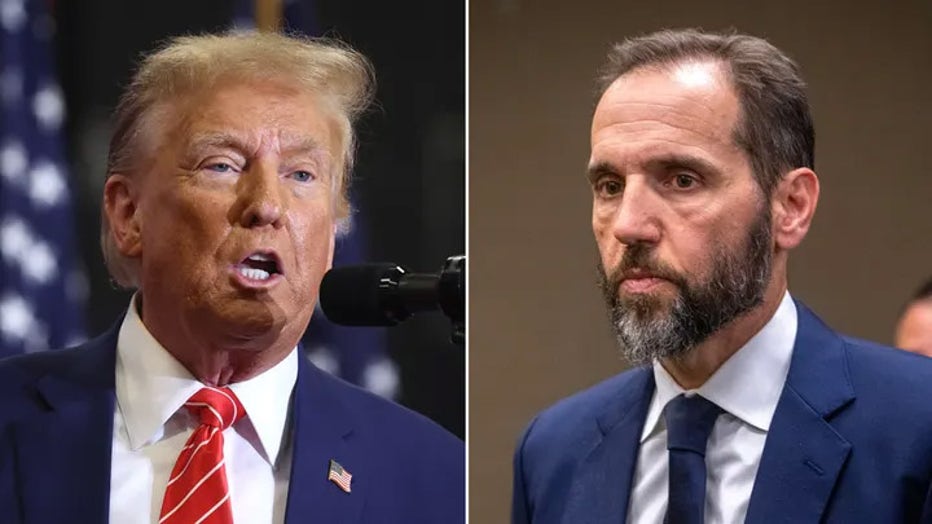Special Counsel's final report on Trump's presidential election interference case released
WASHINGTON - In a highly anticipated report released Tuesday, Special counsel Jack Smith asserted that his team "stood up for the rule of law" during its investigation into President-elect Donald Trump's attempts to overturn the 2020 election results.
What did the Special Counsel's final report say?
In the report, Smith expressed unwavering support for his decision to bring criminal charges, which he believes would have led to a conviction if voters had not returned Trump to the White House.
Trump's presidential election interference case special report
In a highly anticipated report released Tuesday, Special counsel Jack Smith asserted that his team "stood up for the rule of law" during its investigation into President-elect Donald Trump's attempts to overturn the 2020 election results.
"The throughline of all of Mr. Trump's criminal efforts was deceit-knowingly false claims of election fraud-and the evidence shows that Mr. Trump used these lies as a weapon to defeat a federal government function foundational to the United States' democratic process," the report said.
READ MORE: Jack Smith resigns from DOJ ahead of Trump presidency
The new report, released just days before President-elect Donald Trump is set to return to office on January 20, casts fresh light on his frantic but unsuccessful attempt to retain power in 2020.
With prosecution now off the table due to Trump's election victory, the document is expected to serve as the final Justice Department account of a dark chapter in American history that threatened the peaceful transfer of power, a cornerstone of democracy for centuries. The report complements previously released indictments and findings.
When was the Special Counsel's final report released?
The Justice Department transmitted its report to Congress early Tuesday after a judge denied a defense effort to block its release.

Donald Trump and Jack Smith (Getty Images)
A separate volume of the report, which focuses on President-elect Donald Trump's hoarding of classified documents at Mar-a-Lago and forms the basis of a separate indictment, will remain sealed for now.
Smith, for the first time, detailed the reasoning behind his team's prosecution decisions. In the report, Smith explained that his office chose not to charge President-elect Donald Trump with incitement due to concerns over free speech. Additionally, they refrained from charging him with insurrection because he was the sitting president at the time, and there was uncertainty about proceeding to trial with an offense that had no prior record of prosecution.
The Source: The Associated Press contributed to this report.

